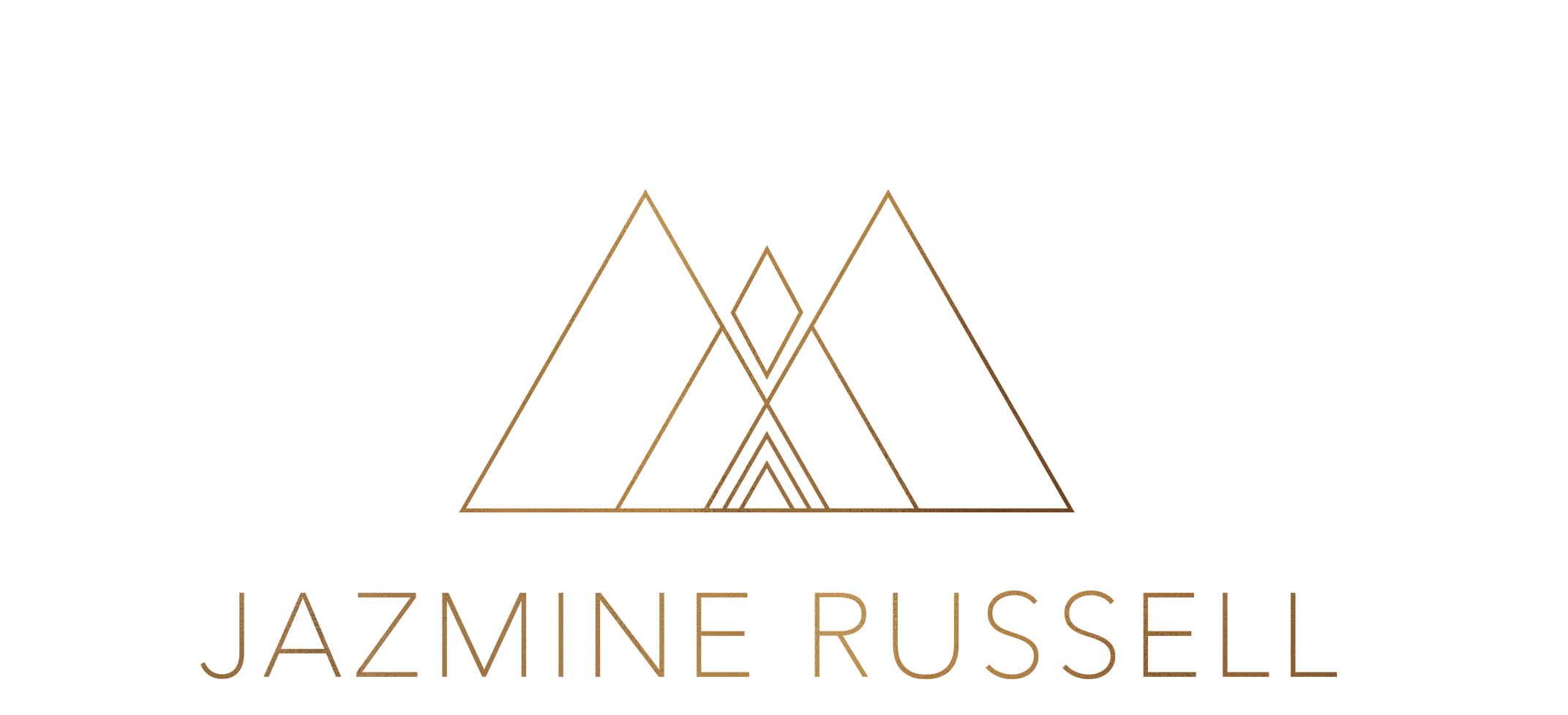How to Survive a Healing Crisis: When Things Get Worse Before They Get Better
How to Survive a Healing Crisis: When Things Get Worse Before They Get Better
Sometimes things get worse before they get better. If you've ever been through a "healing crisis," you know just how true this is.
A healing crisis is a temporary worsening of symptoms during the healing process.
When it comes to healing the body, this can look like detoxing or "die-off symptoms" which cause fatigue, pain, and other symptoms when the body has to eliminate toxins after antibiotics or other treatments. In emotional healing, this often looks like sudden worsening of depression, anxiety, extreme states, or huge tidal waves of emotion coming up to be released. Often, mental, emotional, and physical symptoms occur in tandem.
Unfortunately, mainstream mental health doesn't really acknowledge healing crises or discuss crises as an opportunity for growth. Rather, we tend to view crises only as negative experiences to be stopped or fixed. In my experience, repair and transformation can't occur unless we give ourselves space to go deep into that liminal space, the big void, with the right support.
So, what distinguishes a "healing crisis" from a regular crisis?
How we, and the people around us, approach the pain. In truth, I believe most emotional crises are "healing crises," when we can understand how hitting a breaking point often reveals truth, wisdom, and possibility.
Chronic Illness & Healing Crises
I've recently come out of my own healing crisis of sorts. In the last few months, I've been forced to truly prioritize healing my autoimmune issues and to be real with you, it's been a doozy. For many years in my healing process, I've run headfirst into shadow work, emotionally and spiritually fully willing and ready to feel it all. "The only way out is through" has been my lifelong motto when it came to the mental/emotional/spiritual realm. Yet, often, I left my body behind in the dust and the rubble that got kicked up from years of processing trauma. As Bessel Van Der Kolk's book title describes, the body does indeed "keep the score" and the tallies often do not look good.
It's easy to feel that our bodies are punishing us, raging against us, but in my experience, the body is the true keeper of wisdom. The body will always tell you when something isn't right. Research on trauma, PTSD, and autoimmunity, for example, show us how the body responds to pain and neglect. One study showed that those who rank high on the adverse childhood experiences scale (how childhood trauma is often measured) are up to 80% more likely to be hospitalized with an autoimmune disease. I am definitely one example of this co-occurrence. By the time I found out about my disorder at 22, however, I had that many years of damage already done.
Like many chronic diseases, autoimmune issues aren't singular conditions, they are systemic and associated with a whole host of complications. For me, this concoction of issues looked like Celiac Disease, Irritable Bowel Syndrome, chronic fungal and bacterial infections, depression, multiple food allergies, Small Intestinal Bacterial Overgrowth, asthma, vitamin deficiencies, malabsorption, weakness, dizziness, chronic stomach pain, psychosis, bloating, and much more.
After years of getting dizzy from the revolving doors of specialists that led to no answers and more damage, I finally opted to see a Functional Medicine Doctor. If you aren't familiar with Functional Medicine I wrote a post on it here, describing the approach and how it relates to emotional health and psychiatry. In essence, Functional Medicine Doctors seek the root causes of symptoms, acknowledging that one cause can produce many symptoms, and anyone symptom can be linked to a number of causes. They are like highly specialized medical detectives that use unique testing and systems thinking to understand how you got to where you are today. Often, Functional Medicine consults are multiple hours long, they work in teams, are nutrition-based, and look at the whole person. Truly remarkable, right? Especially in a system that favors 15 min consults, treating symptoms only, and often reduces people to a disease without looking at its roots.
Over the course of 6 weeks, my treatment of herbal antibiotics (in this case "herbal" did not mean "gentle"), inflammation-reducing, and immune repair supplements were in full swing, and as a by-product of the treatment working, I started "herxing" hard. Herxheimer syndrome (aka "herxing") is a well-documented occurrence that happens when bacteria and fungi "die-off" and your body has to work to eliminate the waste products and toxins that result from the die-off. In essence: you feel like absolute shit. Debilitating nausea, chills, fatigue, depression, dizziness, aches, malaise. It's not fun. Yet, it's quite the literal embodiment of a healing crisis, in that if you feel like crap, you know it's working.
Those 6+ weeks forced me to slow down, acknowledge the limitations of my body, and face the uncomfortable lingering emotional wounds that came to the surface around survival, love, rejection, safety, and loneliness. It was painful, not a quick fix, but well worth it and I'm grateful every day I had the opportunity to make this leap.
If you're have been or are going through a healing crisis of any kind, here are my 5 best strategies for moving through it:
1. Let Rest Be Thy Medicine
You're likely tired of people telling you to rest, especially if you're a restless do-er like me. At first, rest, indulgently bad television, and Instagram scrolling can feel good, and then it just gets boring. Several times during my treatment, I got in my car and drove for 5 minutes down the block just to feel like I was going somewhere.
I get it, rest isn't always easy, and the voices in our heads telling us we should be doing something different or more productive are debilitating. So here's are some pro tips for resting without guilt and shame:
Identify several things that you will be neglecting or giving up during this time (e.g. a specific project, making the bed, getting dressed, being a "good" dog mom, doing laundry, limiting client calls, etc.). During this time, something's gotta give and if you don't make the decision beforehand, life will make it for you. Deciding what's no longer a priority puts you back in choice and helps eliminate shame.
Set a time limit for rest. This time limit (e.g. 3 days, 2 weeks, 4 weeks) can be extended at any time, of course. You're not saying you'll feel better in X days/weeks, just that for X days/weeks you won't be feeling guilty for not doing more. When your brain has a date in mind, a container for the rest, it doesn't feel as daunting to sink into. In other words, allow yourself to "do nothing" for a specific amount of days, after which, you'll reassess what you need.
2. Discover What The Body Wants/Needs
A healing crisis is a good time to gently explore how your body wants to be cared for. Many of us don't naturally know what our bodies need or want at any given moment, especially if we grew up terrified to vocalize our needs.
How does your body want to be honored?
What's most important to give your body?
The 1-3 things that make all the difference could be a bath, a specific food/meal, meditation, a hug. Keep it simple, but explore ways that make your body feel safe and relaxed.
3. Ask For What You Need
It's one thing to know what you need, and a whole other thing to ask for it. One of the hardest parts about having your needs met in crisis is that our society is not set up for supporting each other, so it often feels like an impossible task to draw on community support within an individualistic society. Often, we shame ourselves and feel we "should" be able to handle something alone. Secondly, most of us have developed adaptive strategies at a young age to avoid rejection and pain. These strategies often stop us from receiving what we need and can look like:
asking indirectly, passively, or not at all
asking people we subconsciously know aren't able to give the support we need
not let the urgency of the need be known
asking when it's too late or after the fact
letting the need fester and old wounds emerge so they ask turns into a demand (i.e. getting angry at others for not meeting one's needs or withholding love when an ask is denied)
equating someone's ability or inability to meet your needs with how much they love you
It's immensely vulnerable to make a request and ask for what you need, but it is one of the best ways to increase intimacy and connection. Isolation and disconnection co-created the wounds that likely put is in crisis in the first place. Healing this means being willing to be vulnerable.
4. Let The Difficult Emotions Lead You In
Even if your healing crisis centers around physical pain and health concerns, emotional pain will inevitably come up. Whether it's a consistent depression, sudden panic, or old emotional triggers that arise, healing crises are opportunities to go deeper in. I am of the belief that emotional pain comes up to be released. It's a testament to the work you've already done, that this invitation has come along for even deeper healing. As you already know, emotions can't be truly ignored, stuffed down, or sidelined - it will always come back bigger and heavier if we try. Yet, when we are conscious with the emotion and even allow it to expand, it shifts almost as quickly as it came in.
Richard Reoch has a great quick practice for this using the acronym: LESR
Locate: Where does the emotion live in your body? Make contact with it.
Embrace: Embrace the emotion, sensation, or resistance. Move toward it with compassion. Hold space for it to expand.
Stop: Let go of the thoughts, stories, and its "hooks" in you. Let go of any resistance you feel around it.
Remain: Stay with just the feeling until it moves, shifts, changes into something else, or dissipates.
Practicing feeling emotion in your body is the best way to listen to its wisdom and release all that is pent up inside.
5. Know What Chapter You Are Living In The Story Of You
If we look at our lives like one big story, each part can be broken up into chapters. Some chapters include struggle, triumph, adventure, pain, loss, and big transitions. The healing process is likely not-so-neatly woven into these chapters, scattered throughout and alongside all the other parts of our messy human lives. Sometimes it takes center stage, other times it's a humm in the background.
When we are at a pivotal crisis moment, it's easy to feel that the whole book of our lives is about struggle. If we can remember that this is one chapter of many, we can expand our perspective. What helps me is being able to feel how moving through this moment of crisis will allow me to do even more with my passion, skills, abilities, and life, how it will benefit me and others I come into contact with, how it will increase my empathy, compassion, understanding of suffering.
So, consider, what is this chapter about for you? How is this chapter of your life setting you up for your next?
Often things get worse before they get better, but they do get better.
Wishing you lots of rest and compassion,
Much love,
Jaz









